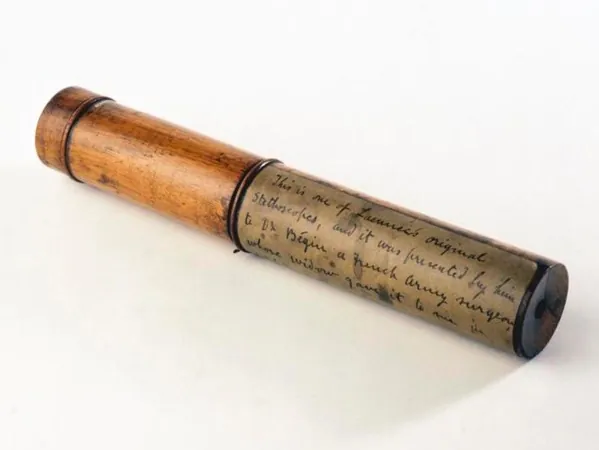
Revolutionizing Heart Care: How One Cardiologist's Vision is Transforming Southern Alberta
2024-11-21
Author: Emily
Introduction
In a significant push to enhance cardiac health services in southern Alberta, Dr. Sayed Zielke is determined to combat heart disease, the region's top killer. Since she began her journey in Lethbridge in 2013 as the first cardiologist in the South Zone, Dr. Zielke has dedicated herself to not only improving medical services but also drastically reducing the cardiac mortality rates that plague the area.
The Heart Disease Challenge
Heart disease accounts for a staggering 35% of all deaths in southern Alberta, making it a critical health challenge. Alarmingly, the death rate from cardiac conditions here surpasses the provincial average by over 26%, while the risk of heart attacks is 15.5% higher. Dr. Zielke emphasized the urgency of this situation. “It's devastating,” she shares, noting her passion to turn these statistics around.
Access to Care and the Cardiac Catheterization Lab
Aware of the service gap, Zielke cobbles together a growing team of six cardiologists. Despite this, the reality is that many of her patients still find themselves journeying to Calgary for essential treatments. "About 1,300 local patients travel to Calgary each year for interventional cardiology support, which is far from ideal," she explained, citing the detrimental impact this has on emergency ambulance services within the community.
Dr. Zielke believes access to care is pivotal and has been championing the establishment of a cardiac catheterization lab in Lethbridge. “This lab is crucial—it will save lives and provide access to care right in our community,” she stressed. The new facility will be instrumental in offering timely interventions for patients who would otherwise face long waits during transfers to Calgary.
Demographic Challenges
The demographic challenges contribute to the issue: with scattered rural populations and a higher incidence of risk factors such as diabetes, obesity, and hypertension, southern Alberta presents unique hurdles in cardiac care access. The less urbanized nature of the South Zone makes immediate health care less accessible compared to urban centers like Calgary.
Advocacy and Community Support
However, hope gleams as Dr. Zielke embarks on a path sparked by advocacy and community support. Years of relentless pleading have recently yielded results with funding approval for the new lab, moving it into the planning and design stage. “I’ve been told before that we’d get a cath lab when Hell freezes over. Well, it’s official: Hell has frozen over!” she exclaimed, highlighting the long journey taken to reach this milestone.
Community Involvement
Community involvement has played a pivotal role in bringing this vision to fruition. The Cardiac Sciences Advisory Cabinet, in collaboration with Alberta Health Services (AHS) South Zone and the CRH Foundation, is actively fundraising in their initiative called the "Bringing Hearts Home" campaign. Their ambitious goal is to raise $30 million by the end of 2027 through various events, including a gala featuring former NHL star Lanny McDonald.
Goals of the Campaign
Beyond the establishment of new facilities, the campaign targets upgrades across the southern Alberta region, aiming to match the level of care available in other parts of the province. Dr. Zielke outlined the goals of the campaign: prioritize patient access, enhance existing facilities, replace outdated technology, and recruit skilled cardiology experts capable of delivering high-quality care.
Vision for the Future
In a region serviced by several acute care centers that currently lack the necessary technology and specialization for advanced heart treatment, Dr. Zielke envisions a “Southern Alberta Cardiac Centre of Excellence.” This center would not only strive to elevate the standards of cardiac health care but also embody a transformative solution that brings life-saving care closer to home for all residents.
Conclusion
With continued support and a shared vision, southern Alberta may soon witness a revolutionary change in how heart health is prioritized and managed, potentially saving countless lives in the process.









 Brasil (PT)
Brasil (PT)
 Canada (EN)
Canada (EN)
 Chile (ES)
Chile (ES)
 España (ES)
España (ES)
 France (FR)
France (FR)
 Hong Kong (EN)
Hong Kong (EN)
 Italia (IT)
Italia (IT)
 日本 (JA)
日本 (JA)
 Magyarország (HU)
Magyarország (HU)
 Norge (NO)
Norge (NO)
 Polska (PL)
Polska (PL)
 Schweiz (DE)
Schweiz (DE)
 Singapore (EN)
Singapore (EN)
 Sverige (SV)
Sverige (SV)
 Suomi (FI)
Suomi (FI)
 Türkiye (TR)
Türkiye (TR)